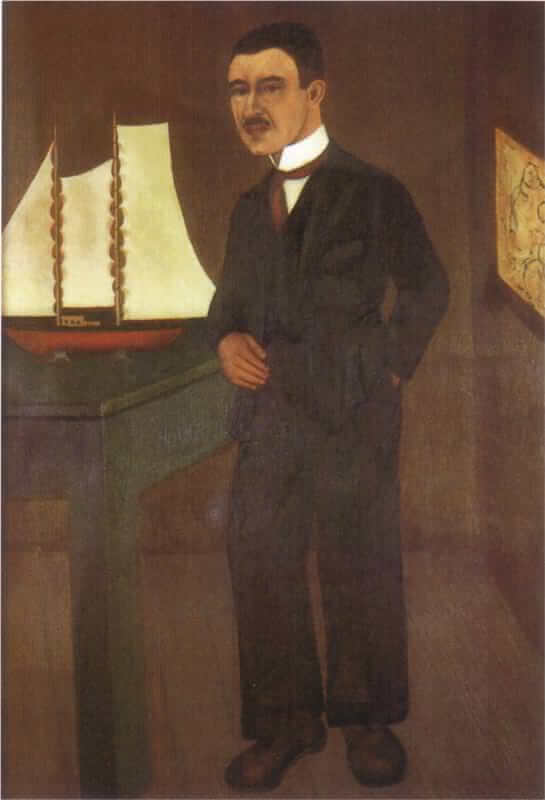Why do you create?
There are many answers to this question. I wonder what yours is right now? Perhaps, in all honesty, your answer is 'I create so that I can get some work submitted!' 'Or, I create so that I can graduate!!' Or maybe you don't even know anymore. It is easy to be so consumed by the pressures of our time at University that all the joy of making is taken away.
In many ways this is natural, we want to be conscientious, so when a deadline is put in front of us we seek to work hard to meet it to the best of our abilities. There is nothing wrong with that. But there are many times I have caught myself thinking - I create so that other people will know that I'm good at something, to impress a lecturer or to prove that I have some value and am worth paying attention to.
When I catch this attitude in myself, I realise that I have sucked all the joy out of making and turned it into a tool to build up my own self-esteem. Coupled with this often comes an attitude of competition that causes me to compare myself to others. I become proud of myself when I perceive that I am doing better than others. The next moment I am crushed when someone is better than me, and I struggle to celebrate their gifts. Either way, I get caught up in an attitude of comparison and competition that prevents me from celebrating my own creativity and the creativity of those around me.
C.S Lewis writes in Mere Christianity, "We say people are proud of being rich, or clever, or good-looking, but they are not. They are proud of being richer, or cleverer, or better looking than others". When we play this constant comparison game our ego is continuously inflated or deflated, and our eyes are constantly on those around us. It is exhausting! Our creative gifts are an incredible echo of God's own character and a gift from Him to be treasured. Yet when we use it to prop up our own sense of self and value, we turn creativity and our giftings into something it was never intended to be.

Source Image
God knows this desire within us and warns against it in the Bible through the story of the Tower of Babel in Genesis 11. In this passage, we see the Israelites working together to harness materials, transform them into new materials and then design and construct using them. This is a wonderful beginning, but we quickly find out that the reason they are doing this is to bring glory to themselves.
"Come, let us build for ourselves a city, with a tower that reaches to the heavens, so that we can make a name for ourselves" Gen 11 v 4
The Israelites' incredible capacity for creative collaboration and ability to transform raw materials into buildings has been redirected. These aspects of their humanity that echo God's character have been redirected as a means to bring glory to themselves. God frustrates this process and uses the Israelites as an example of his displeasure with our pursuits to create a name for ourselves.
Have I done enough?
"I paint flowers so they will not die"
When we paint marks on a canvas, or write words on a page, or draw designs on paper, we are extending ourselves beyond our body and into the world around us. There is a certain desire for permanence in this. This is captured beautifully in this short quote and in the wider work of Frida Kahlo.

Image Source
The artist has made her mark on the world and created a legacy that stretches far beyond her short life. In this painting the flowers that she wears upon her head have all now whithered and died - but her painted flowers have not. She paints so that the flowers will not die. She creates, we create, perhaps to place a marker on our present reality and say "This was here. I was here".
As someone who loves art history, I am so thankful that we do this. The arts in all their forms provide a rich story of the whole of human history and connect us across the boundaries of time and geography. So as Kahlo weaves her life into her painting, she is offering a gift to the future. This gift is the story of her life, the story of reality as how she sees it - reaching beyond herself and into the hands of those ahead of her.
But perhaps the idea of permanence or legacy tied to our creativity is the reason why so many of us connect it with our sense of value and importance. Was that not the desire of the Israelites as they built the Tower of Babel? What I create will be placed into the hands of another, and my concern is that their judgment of me will dictate my value. Frida Kahlo has been judged to be worth remembering, for good reason, but what of those artists of her time who were not? What of their work? What of their value? Will that be me? When we hand our work over to be judged by lecturers, friends and the public, we open ourselves to uncertain scrutiny - have I done enough to secure the grades and the praise? Have I done enough to prove to others that I am worth remembering?
Creating for a Dear Friend
Kahlo's paintings have become so successful in part because her desire to make was less focused on building up an image for herself and more as a space of honesty and reflection. This is particularly true of the painting pictured above. The work is titled 'Self Portrait Dedicated to Dr Eloesser' and was made as a gift for one person. Dr Eloesser was a friend who had walked with her and offered support through the ups and downs of her life. She is choked by thorns in this painting, reflecting the honest sharing of her pain. However, this is not a painting of despair - it is a token of gratitude and friendship. The gift is personal, a thank you to a dear friend who knows her best but has accepted and supported her throughout her life. A thank you for your help - even in the pain. Especially in the pain. The painting is not made for him to scrutinise, and so the work feels more intimate. In the painting, she gives a knowing look and expects that her friend will respond similarly - seeing her, knowing her, and accepting her.
When we are working to prove ourselves our creativity can still be successful - the Israelites were able to begin building a successful tower even when their motivations were wrong. But a sense of play and joy can be returned to our creative process when we make out of a place of security and gratitude. Children in this way are perhaps the most wonderful of artists, creating out of pure joy rather than a self-conscious desire to impress others.

Source Image
As you work towards your various projects and conclude your year at University, might I encourage you to keep your focus on your dearest, most accepting friend Christ? In John 15 v 15 Christ reminds us that:
"You are my friends if you do what I command. I no longer call you servants, because a servant does not know his master’s business. Instead, I have called you friends.."
Christ invites us into friendship with himself, a friendship only made possible by his self-sacrifice on the cross. He chooses to receive and accept us in whatever state we are in - so long as we see our need for him. We are therefore not his servants, who must work to showcase their merit and usefulness, but are those who are invited to receive a free gift of full acceptance in the form of a friendship.
As Christians, as friends of Jesus, our creativity is not to be warped into a tool for establishing our value and worth - we put too much pressure on our creativity when we do this. Rather, knowing Christ's acceptance of us ought to enable us to find the joy of creativity again. We can be encouraged to create from a place of play, freedom, and gratitude, knowing that we create for our dearest friend who tells us we are loved and accepted no matter what.

